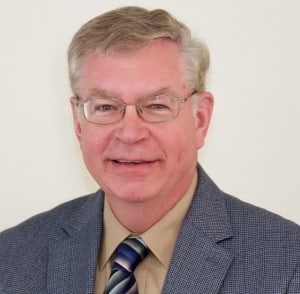By Rep. Jim Harrison
On Jan. 6, the Vermont Legislature convened for the start of the 2021-22 biennium. Normally the first week has its share of tradition, as well as some pomp and circumstance, with the swearing in of all 180 lawmakers along with the State’s constitutional officers and the Governor’s Inaugural address, which are all done in Montpelier. The State House is filled with families, friends, guests, past governors and more. There is often a school or choral group singing “Our Green Mountains.”
Not in 2021.
This year, most of the events were virtual, much like how the legislative session ended last year. Governor Scott gave a brief speech via Zoom to a joint session (House and Senate) of the Legislature on Thursday afternoon and chose to give his expanded speech to a television audience Thursday evening. Legislators met their new committee colleagues and began their work online.
As a footnote to the swearing in of the state’s top two office holders, both oaths were administered by Chittenden residents: Vermont Chief Justice Paul Reiber for Governor Scott and Federal Judge Peter Hall for Lt Governor Molly Gray.
In his speech Thursday, the governor, while complimenting Vermonters on their collective efforts with the state’s response to the pandemic, called for unity in tackling the recovery and the challenges ahead. He highlighted investments in public health, economic relief, housing, and more over the course of the pandemic. He asked the Legislature to collaborate with his administration and build on that progress to address disparities in education and childcare, promote economic opportunity and job growth, and make Vermont more affordable for working families.
And while Scott supports investment in childcare, he ruled out any new payroll taxes for such efforts.
Other items of note:
- Supporting downtowns of all sizes through Tax Increment Financing (TIF) districts;
- Creating a more flexible education system from “cradle to career;”
- The need for increasing the number of taxpayers while not increasing taxes;
- Reducing the cost of unemployment insurance to employers without negatively impacting benefits to those unemployed;
- Supporting employers through renewed business grants for those businesses that have been detrimentally impacted by Covid.
- More details on the governor’s priorities will be forthcoming in the administration’s budget proposal on Jan. 26.
The Legislature’s first week, however, was overshadowed by the events in Washington where, as you know, a mob of Trump supporters stormed the U.S. Capitol building to disrupt the certification of the November election. Following a statement of strong condemnation by the governor and a push for Trump to resign or be removed, the Legislature approved a resolution with essentially the same message.
In just over a week, former vice president, Joe Biden, will become President. It is time, in my view, to move ahead and find ways to unite the country. Perhaps Vice President Pence and President-Elect Biden should meet and send that message together.
In the “be careful what you say” category, last May in announcing my candidacy for re-election, I stated that I would not shy away from the choices we will need to make as a state given the many uncertainties of the pandemic. Little did I know that our new House Speaker, Jill Krowinski, would appoint me to the influential House Appropriations Committee.
The committee of 11 returning members (seven Democrat, four Republican), is charged with crafting the House version of the state budget, generally using the governor’s proposal as a starting point. Additionally, House rules generally require that all pieces of legislation that include spending money and are advanced by other committees, make a stop in appropriations before headed to a vote by the full House.
While I am honored to be selected for this assignment, it comes with the challenge of many tough choices, as there is never enough money to fill all the proposals submitted. And the next budget could be especially tough given reduced revenues overall. The word “no” may need to become more common a response.
Jim Harrison is the state representative for Bridgewater, Chittenden, Killington and Mendon. He can be reached at: [email protected] or facebook.com/harrisonforvermont.




